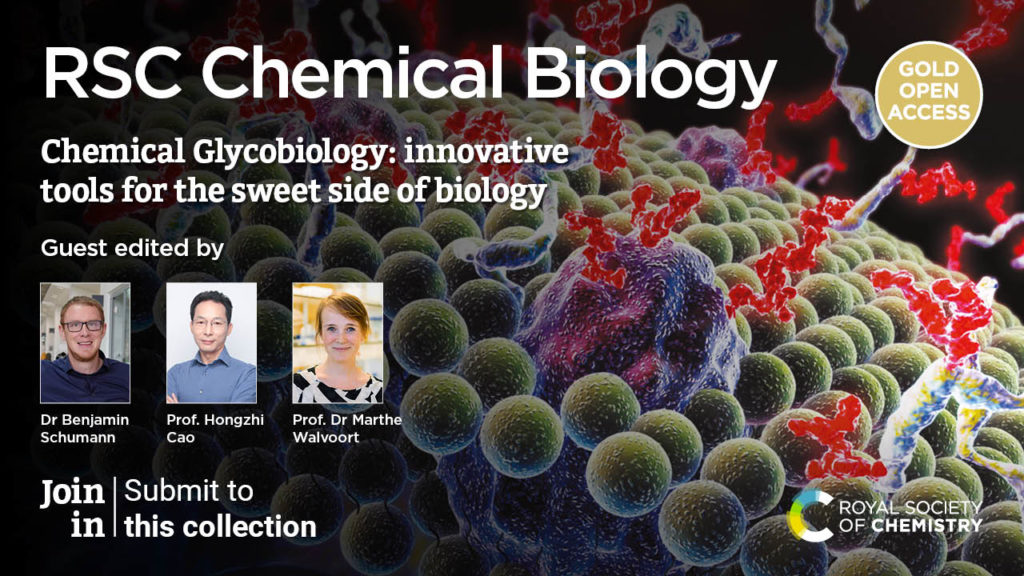
RSC Chemical Biology is delighted to welcome papers for a themed collection on ‘Chemical Glycobiology: innovative tools for the sweet side of biology’, Guest Edited by Dr Benjamin Schumann (Francis Crick Institute and Imperial College London), Prof. Hongzhi Cao (Ocean University of China) and Prof. Dr Marthe Walvoort (University of Groningen).
Glycans have come a long way from their consideration of “decorating” biomolecules to proven, essential modulators of physiology. Chemistry has played an essential part in this process: the non-templated biosynthesis of glycans needed tools for their profiling, perturbation and visualization. The field of glycobiology has thus served as a catalyst to invent new chemistry, recognized through awards by major learned societies as well as the Nobel Prize in Chemistry in 2022.
Through the invention of new tools, their use in understanding critical new biology, and their application in quantitative biology, it is certain that today, chemical glycobiology is advancing the boundaries of science. This themed collection seeks to highlight the use of innovative chemistry in advancing glycobiology in its full breadth. We are excited about contributions that feature all aspects of a field that truly tackles the sweet side of biology!
The deadline for submissions is 1 May 2025.
Authors are welcome to submit original research in the form of a Communication or Full Paper. The manuscript should be prepared according to our article guidelines and submitted via our online system. Ideally, computational work should be experimentally validated wherever possible. For articles to be accepted into the collection, the applications and relevance to chemical biology must be clear. For more information on the journal, please see the journal homepage.
All manuscripts will be subject to the usual initial assessment and peer review processes as necessary, and inclusion in the Collection will be at the discretion of the Guest Editors. Please indicate in your submission that you are submitting to this Collection and inform the Editorial Office by email.
Following our peer-review process, we will publish accepted articles online in a citeable form as soon as they are ready, with compilation and promotion of the complete collection in late 2025.

